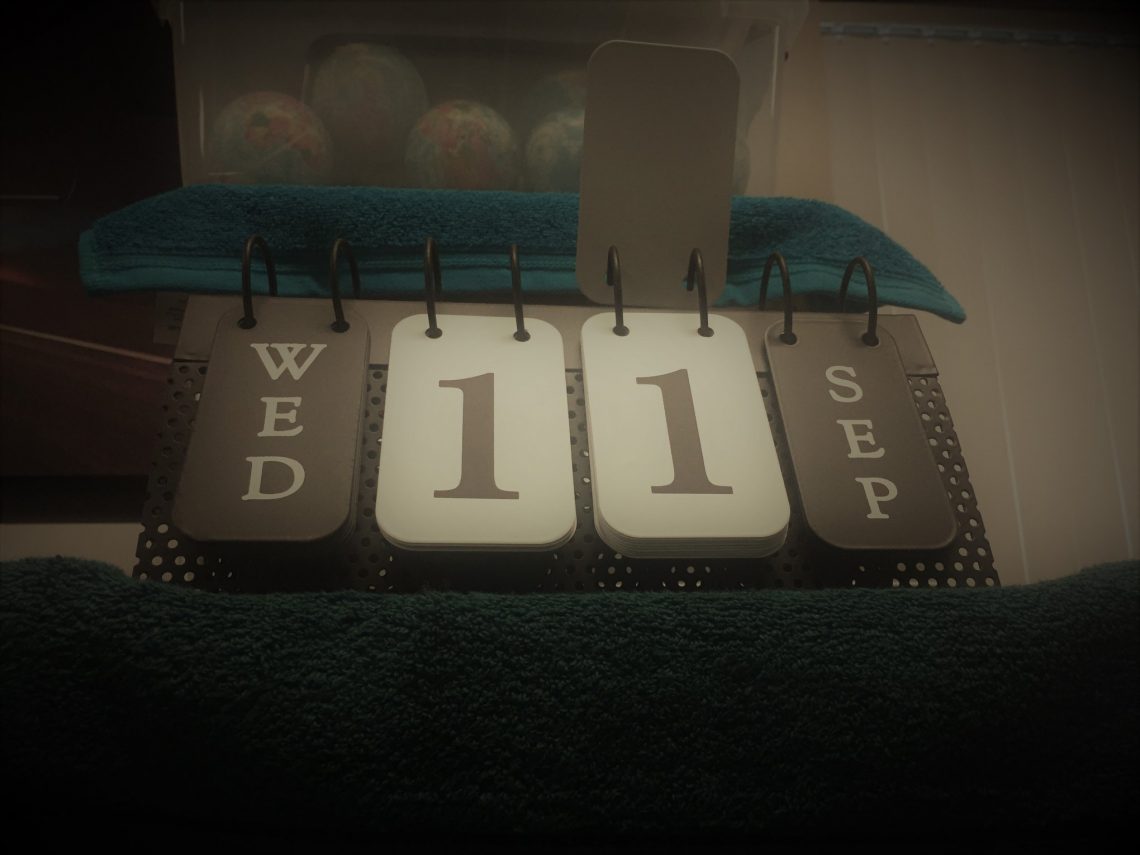
How Generations Move Forward
Never forget, and always remember, and forever, forever stay in our hearts.
These are the terms of endearment we offer to ourselves and each other after a tragedy, a temporary promise that we will keep our memories sharpened by the gravest of emotions we once felt, during those horrific moments we cried together, as a nation, as families, as friends, a promise that only survives as long as someone hangs on, as long as someone keeps stirring up the highest and the darkest of emotions that were once so deep and surreal. But like all tragedies of human history, from assassinations and wars to accidents and complicated milestones, there comes a point when “never forget” has no relevance to our youth, to the children who weren’t even alive to burrow a single memory of the event. And that’s okay.
To start off the morning, I placed an image on the screen with no text. Two lights shooting up into the darkness, the night skyline of New York, a modern image familiar to all of us, as grown adults, but only vaguely recognizable to a child if they have either been to New York or had someone talk to them about 9/11. When asked if they knew what the image was, only 4 out of 24 students raised their hands. Two of them had been there. One of them thought it was a different city. And the other had heard a story, which prompted a few others to recall, though not remember, some of the stories they had been told about the falling of two towers. In many cases, their parents hadn’t even met at the time the towers fell. But we were able to have a short, reflective conversation about the event, nonetheless, before moving on with our normal day.
My mother remembers well the Kennedy Assassination from 1963, when she was a little girl. I still recall the Challenger Explosion from 1986, when I was just a little boy. And for many of our kids today, tragedies on the level of mass shootings and hurricanes and nationwide health crises, from opioid overdoses to depression and suicide, have become so commonplace in America that something as massive as 9/11 falls into a category of “stuff that also happened once in our history,” like the Battle of Gettysburg or the time a guy set foot on the moon, or the time two boys walked into Columbine High School and killed 13 people.
I still see the occasional “never forget” shirt, but for the most part, we are beginning to accept that 9/11 is a matter of record, and less a matter of harrowing emotion. Some even go most of the day, independent of social media, without realizing the date. And that’s okay. If you forgot today was “eighteen years since 9/11,” you’re forgiven. Again, that’s okay.
Because this is how generations move forward.
Because this is how history is written, for better or worse.
Because this is why we teach.

